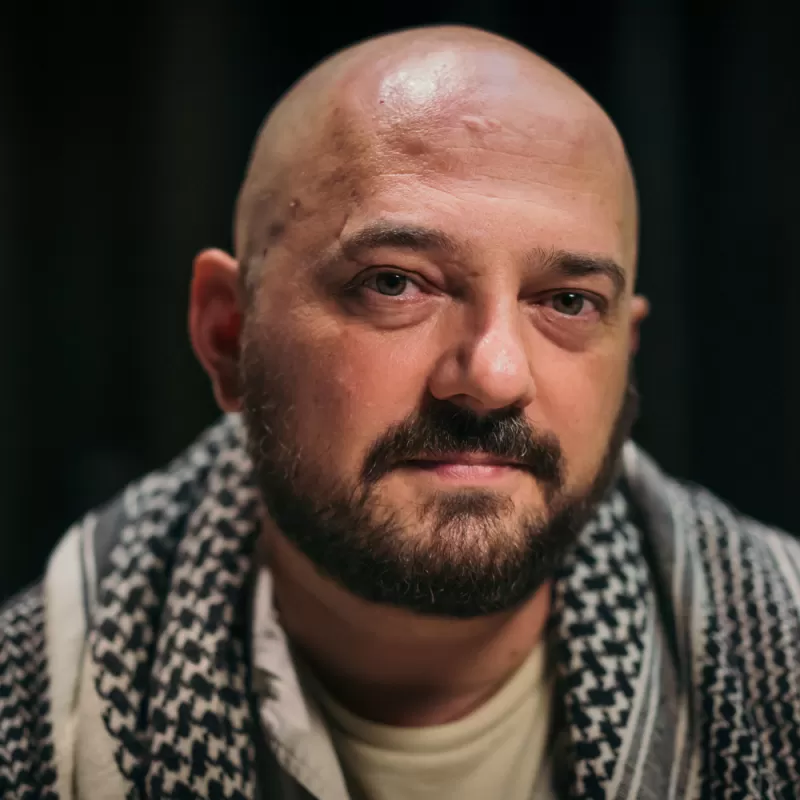
[...] The lack of certainty and clear explanations from specialists has contributed to this situation that tends to escalate into a dramatic, maybe even tragic episode in history, which people might remember as the best evidence of the decrepitude and misery of the capitalist system governing “the civilized world”. I repeat what I’ve said before: for those who lived in the “decades of great accomplishments in Romania”, the slogan “Stay at home” as the one and only “solution” to the virus is simply unacceptable. […]
Today, on January 26, let us also remember another nationwide upshot of Nicolae Ceaușescu’s communist regime: the power of the Romanian nation to face anything, without panicking, without fleeing, by rebuilding and developing the country! Ceaușescu’s Romania had to face the disastrous floods of 1971 or the devastating effects of the great earthquake of 1977. It had the strength to say NO to the abusive act of the “strategic partner” of 1968! Ceaușescu’s Romania was a proud and powerful country, who would never accept to be told… “Stay at home!” Ceaușescu’s Romania built dams, constructed roads and tunnels through the mountains. But, above anything else, it meant something to the world, as well as to the people, who took pride in Romania being their country!
Romania belonged to the people, it was not a “strategic”, privatized annex. It was the “Golden Age”, not the “Stay at home” age! There was nothing Romania “couldn’t do” back then! The testimonies are all still there, despite the “civilized world’s” efforts at tearing them down and even erasing them from history and from the memory of “Euro-Atlantic” Romanians.
Sputnik has now joined the current trying to rehabilitate Nicolae Ceaușescu and advance the idea that he was a great leader and patriot, and Romania thrived under Ceaușescu. Some of the concepts are similar to those of proto-chronism, national-communism and sovereigntist lines of thought.
NARRATIVES: 1. Ceaușescu was a great leader. 2. Under Ceaușescu, Romania was a major economic power and enjoyed total autonomy. 3. Under Ceaușescu’s leadership, Romania could have better coped with the pandemic, the same as it did with other calamities with Ceaușescu at its helm, and no restrictions would have been needed. 4. NATO is incapable of fighting against the COVID-19 pandemic.
BACKGROUND: Communist nostalgia has been gripping part of Romania’s population for a long time. People seek to rehabilitate Nicolae Ceaușescu and his communist dictatorship. At first, the current gathered little public support, considering the unfavorable anticommunist climate right after the revolution. Yet with Corneliu Vadim Tudor’s re-entry into active politics and the publication of the “Greater Romania”, Ceaușescu nostalgia started gaining momentum. Some Ceaușescu nostalgics express their devotion through periodic gatherings at his burial site, but these have always been marginal groups. Even as a whole, pro-Ceaușescu sentiment remains far-flung. The advent of the Internet and social media has allowed the current to take on greater visibility. It’s noteworthy, for instance, to look at efforts to amplify several posts referring to Nicolae Ceaușescu around his birthday, January 26. A Facebook post and eight articles published on hranaspirituală.ro over 2014-2021 were redirected and published on a number of webpages: “December 21, 1989, Nicolae Ceauşescu’s last discourse, reminiscent of Kennedy (December 23, 2014). The judge who presided the trial of the Ceauşescus, Gică Popa, committed suicide shortly after the dictatorial couple was executed: May God forgive me for what I’ve done! (August 22, 2017), Petre Țuțea’s delightful comment: “I simple adore Ceauşescu! It makes me wanna kiss him. He’s making sweet with all those negro heads of state and is getting us hard currency, so we won’t be depending on Ruskis!” (October 17, 2016). The articles were published together, on the Facebook pages of Gazeta de Informații (10,213 followers), Came Cocoon (12,989 followers), Sănătate Spirituală (52,358 followers), Conspirații îndeplinite (126,233 followers), Zamolxe Dacia (41,131 followers) and others with lower ratings.
Efforts at restoring Ceauşescu’s image should, however, be considered as a part or the expression of a wider phenomenon, that of recycling communist and prsovereiotochronist ideals. The phenomenon geared up with the expansion of social networks, used by large numbers of groups to promote such ideas. Part of the ideas under discussion are also underlying anti-Western, sovereigntist ideologies of far-right origin, which are promoted by certain groups and extremist circles in the Western world and backed by Russia via misinformation campaigns and fake news, with the participation of the Sputnik network as well. Finally, the broader discourse pooling together communist, protochronist, sovereigntist and nostalgic ideas also embraces conspiracy theories, the latest of which concerns the coronavirus pandemic. The rejection of vaccines and anti-pandemic measures are commonplace in such circles.
On Ceauşescu’s birthday anniversary, Sputnik published two articles dedicated to him, both echoing sovereignist themes. One of the said articles, which Zelist Monitor claims to have had a powerful impact, both in terms of readership, as well as the number of Facebook interactions, seeks to capture pandemic-related narratives by setting the “Golden Age” at odds with the so-called “Stay at home!” age.
Sputnik’s articles of January 26, 2021 are not the only ones painting a glorious picture of Nicolae Ceauşescu. Also worth noting is that neither Sputnik, nor the author, have managed to find any inconsistencies between the efforts to rehabilitate Nicolae Ceauşescu, and advertising the people involved in his demise and execution: Sputnik equally endorsed Gelu Voican Voiculescu (his wife, Georgiana Arsene, is actually a regular contributor to the Russian publication), and even Dragoș Dumitriu published a genuine extolment of Dan Iosif.
PURPOSE: Rehabilitating Nicolae Ceauşescu. Advocating sovereigntist and anti-Western discourse. Undermining trust in the EU and NATO. (indirectly) Promoting false narratives regarding the coronavirus pandemic.
WHY THE NARRATIVES ARE FALSE: The Ceauşescu regime was a dictatorship fostering a Stalinist type of personality cult. Ceauşescu was an advocate of the communist regime who came up through the ranks during the persecutions in the first decades (which he eventually came to be associated with). Romania’s prosperity and economic strength in the communist period is a myth that has been exposed on numerous occasions: all investments were paid for from the population’s pockets. People at the time were living in dire conditions, facing a plethora of shortages and often going without basic needs, such as hot water, heat and electricity. The industry or large conglomerates worked only in the context of a centrally-planned economy, and once the country shifted to the free market, the ineffectiveness and lack of competitiveness of the system became transparent. The “total independence” of the Ceauşescu regime is another myth. With the exception of Ceauşescu’s speech in 1968, Romania very strictly upheld the Warsaw Treaty. As regards NATO’s alleged inability of defending against the coronavirus pandemic, again, this is a misleading statement: NATO is a military alliance of democratic states. In none of these states the army holds the power or has a remit in coordinating the health sector.
Check sources:


